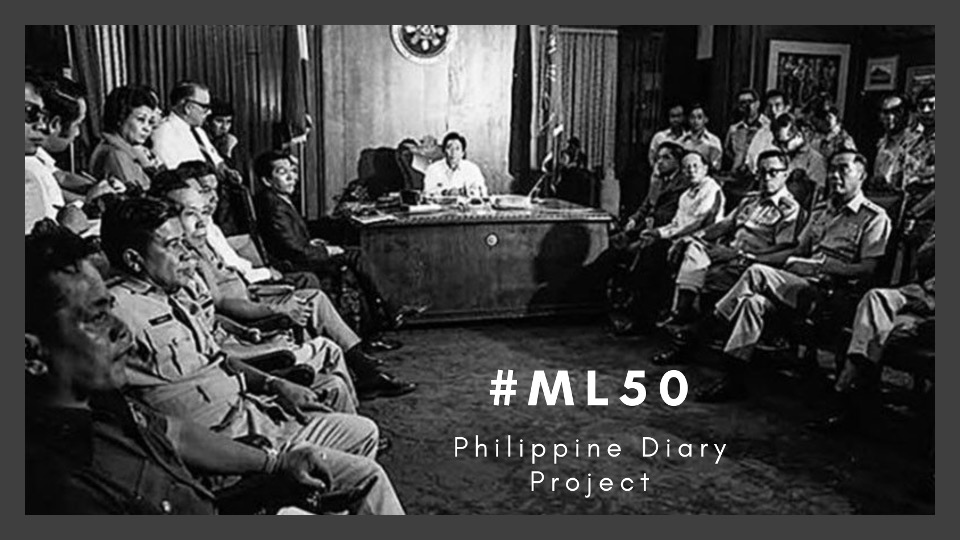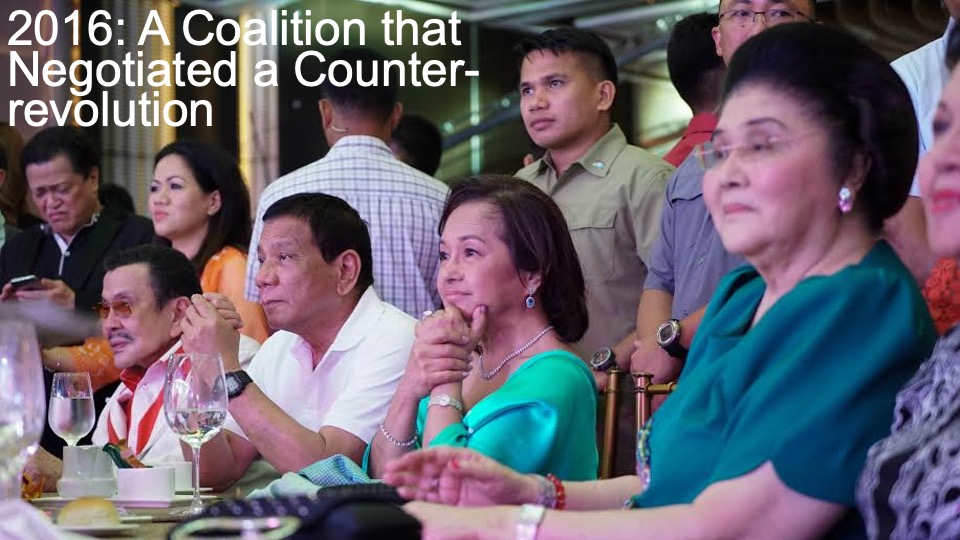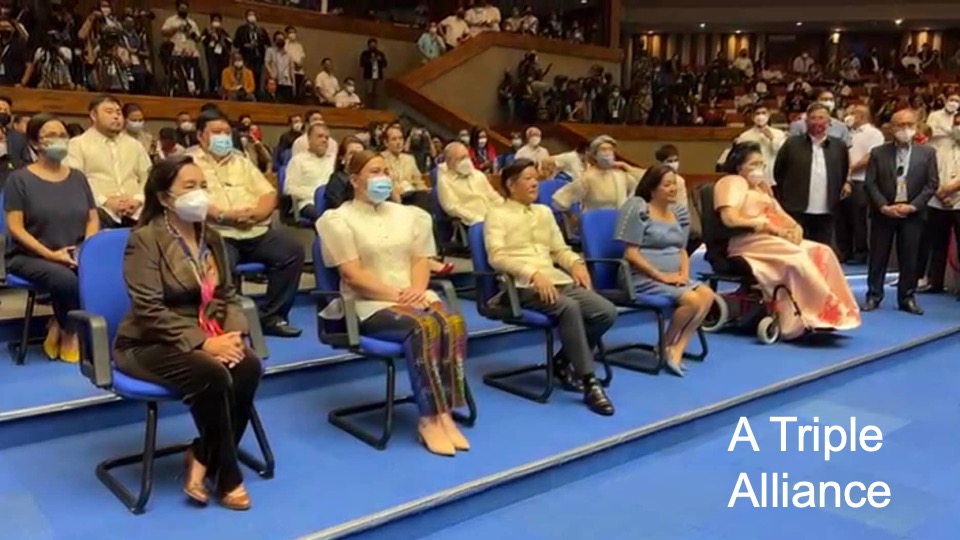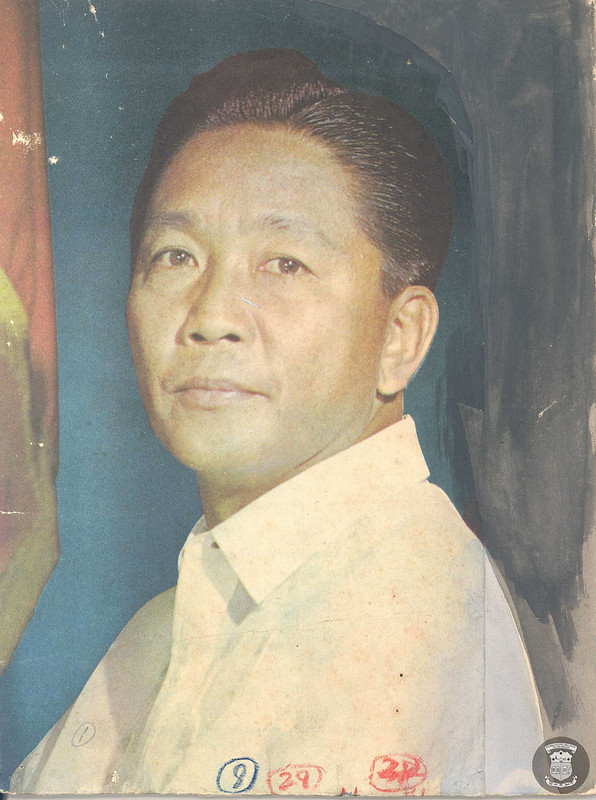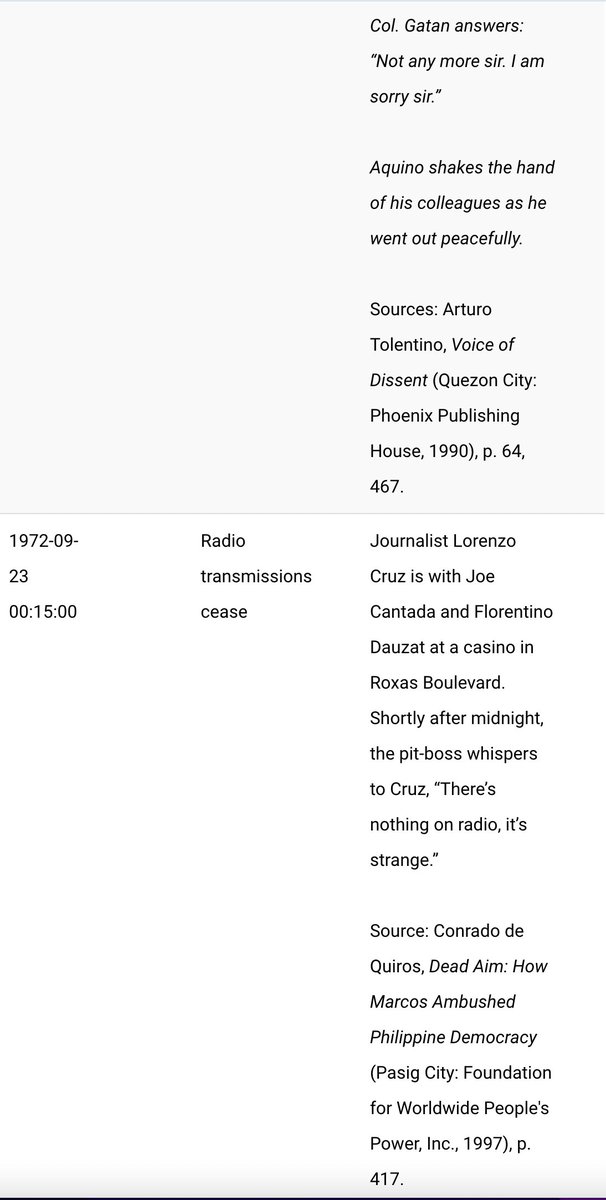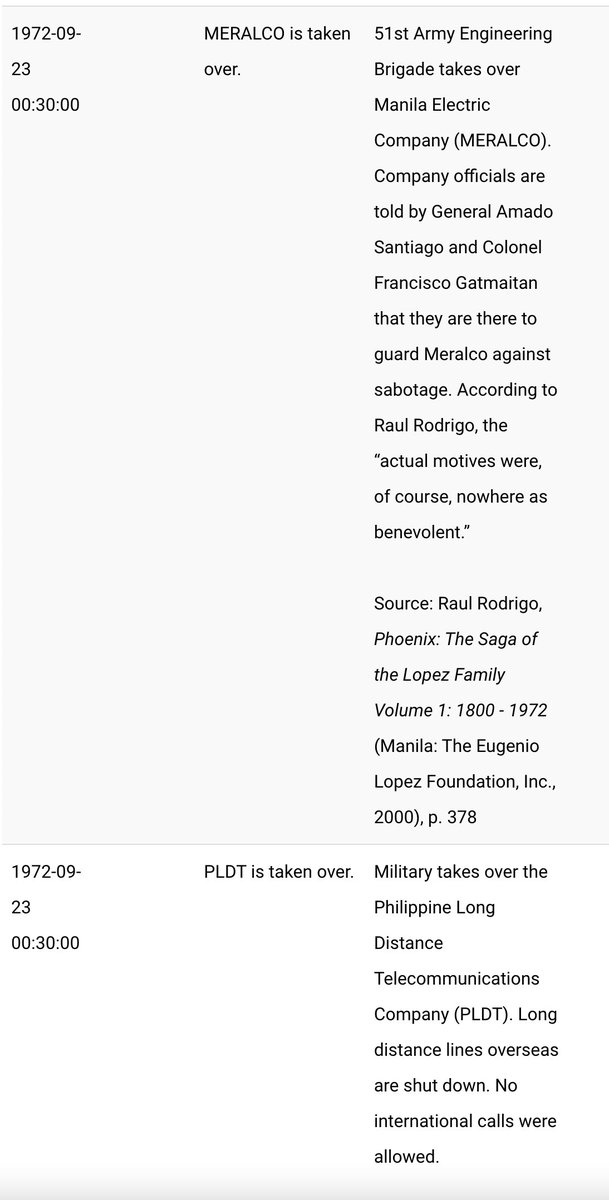Just finished my talk for Cebu's Press Freedom Week. It was livestreamed here: facebook.com/cebucaritascci… #ML50 

My talk's entitled "Always revise," which I think, as hopefully we'll see, is a good and necessary thing. 

This is a week heavy with memory, particularly this year, as we remember 50 years since martial law was proclaimed. But what we actually remember, or are called to remember, is itself interesting for what it reveals. 

As a kind of exercise, let's look at the past with fresh eyes --as if it hasn't happened, but is, instead, unfolding right now, for us as students or teachers of journalism, or actual journalists. 

We'll follow two people as they recount their experiences as it happened: a President, Ferdinand E. Marcos, and a ConCon delegate, Augusto Caesar Espiritu. Their diaries give their interpretation of events. 
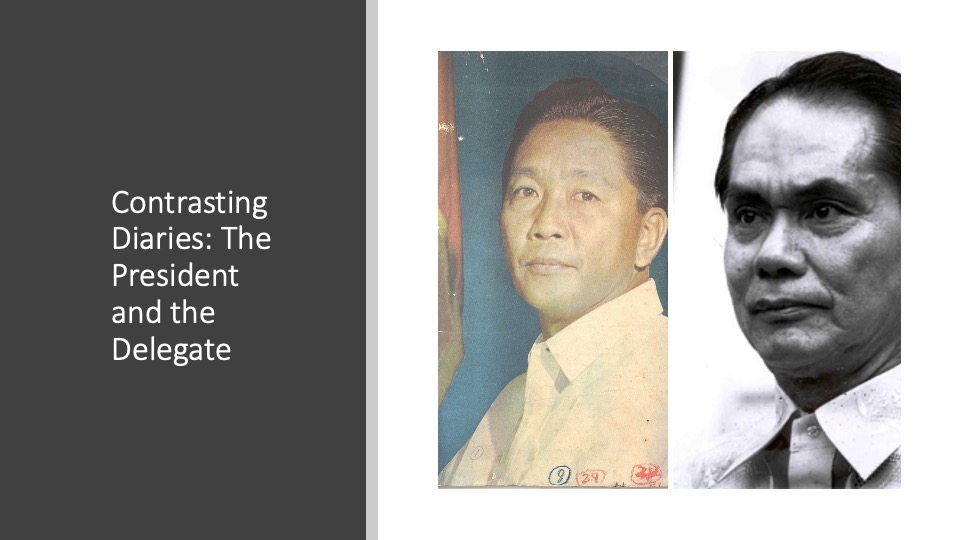
September 21, 1972 is a Thursday, as reporters today will tell you, it's the end of session days for Congress; back then, it was due to go on recess until it reconvened after the New Year. But the leadership realized they still had committee work to do. 
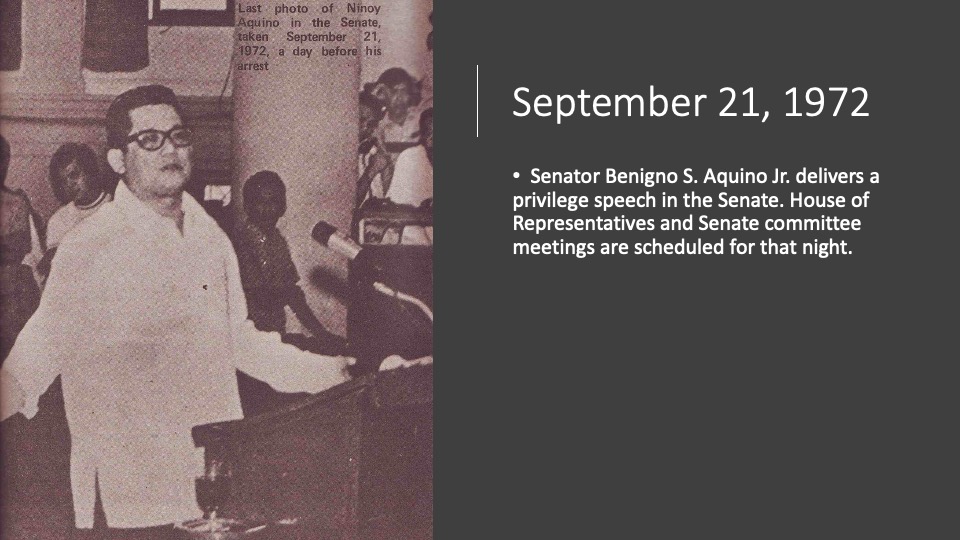
The headlines of the papers tells us what's current and the buzz for the day. As for Congress, they decide to postpone adjournment until Saturday, to allow committee meetings that night and next. 

For his part, Marcos is busy behind the scenes, reassuring worried allies, and lobbying for American support. He notes he finished the paperwork for martial law that night, at 8PM. 

That afternoon, a big rally takes place --at Plaza Miranda. 30,000 reportedly attend. It's covered by the media. 
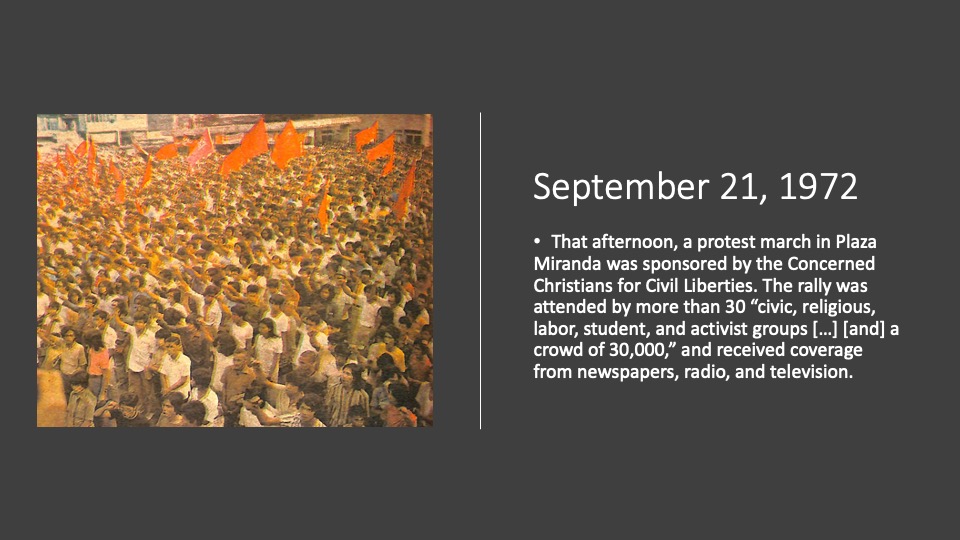
The US Ambassador gets wind of martial law being planned, meets Marcos, and tells Washington he's convinced Marcos to postpone it for the time being. 

September 22, 1972 is a Friday. The papers report that the Senate decided to junk Aquino's call for an investigation into his exposé of an Oplan Sagittarius. Three key associates, departing for abroad, are assured by Marcos there won't be martial law. But that evening? 'Ambush"! 

But prior to that it's a tense-day full of the previous days' news, from exposé and counter-claims, to rallies and warnings. 
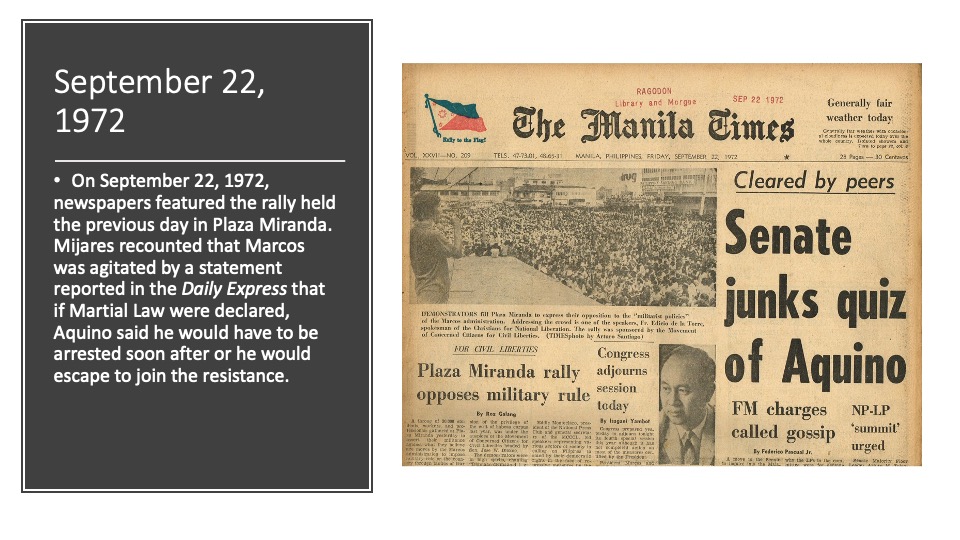
Up to the point of news of the "ambush," life is still "normal." The chronology, to this day, remains confusing but suggests it was a time of adjustment and ad-hoc decision-making based on changing circumstances. After the "ambush," it seems, things begin to move fast. 

There is an Order of Battle to be checked off, a list of target institutions and personalities. There is paperwork to methodically release. 

Timing of course can't be exact; few will methodically note exact times but we have a general sense of what was happening within a timeframe of a few hours. The broader public is unaware of what is going on aside from the ever-active rumor mill until 7:15PM. 
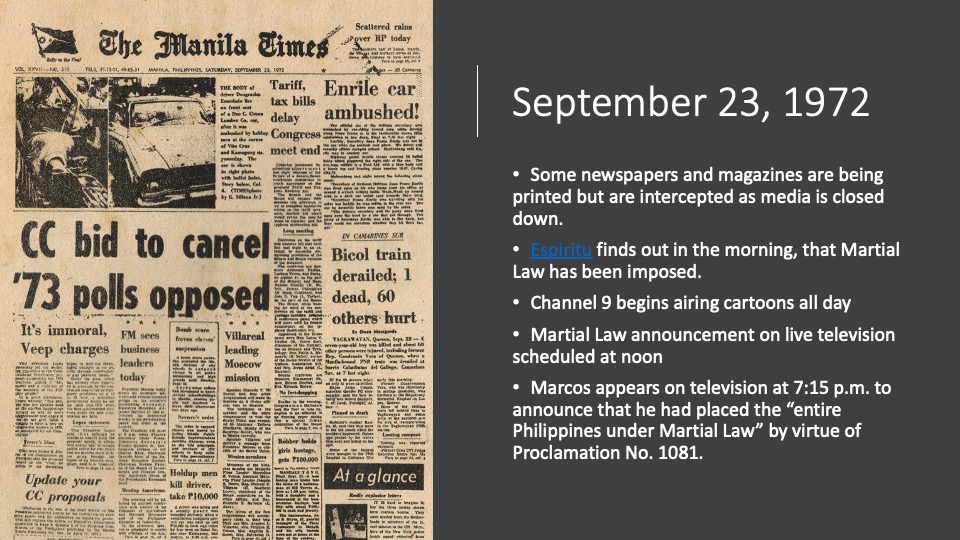
Here, let's pause. Zooming out, we see a four-day story unfolding. It's culmination, for the country, is on September 23. 

But at the time what was clear was martial law became an indisputable fact on September 23 for the country, which is why for the media allowed to operate, they reported it on Sunday, September 24, 1972. 

But of course it wasn't all done by then. Returning to events: Marcos still had to see if his gamble would succeed. He still had to strong-arm institutions. But by Sept. 25, he could start crowing of his success. 

At the heart of what would come next --nothing less than the substitution of memory of actual events, with an implanted, manufactured memory-- was a shrewd understanding of Filipino psychology. 

It's only by engaging in revisionism --in reviewing, re-seeing, re-studying-- by going back and not taking the word of people for it, can we see the depth and breadth of what was accomplished. A national substitution of memory reinforces the dictator's narrative. 

But a review of the sources will help reveal that substitution. So please visit: philippinediaryproject.com/2021/08/27/a-t… 

Check out: philippinediaryproject.com/2013/09/21/the… 

Which brings us to our reality, now during #ML50. The dominant narrative wasn't born yesterday. 

It was born of decades of using every opportunity and every emerging technology, to bypass the generations alive during martial law and make their experience and opinions irrelevant. 

We are experiencing the outcome of three decades of building a narrative so self-contained, it is bulletproof. 

It is based on a truism so often repeated, we forget just how cunning it was --which you can only appreciate by actually revisiting what was actually said. 

The breathtaking cynicism of the statement is actually magnified if you revisit what was actually said --and is actually practiced. 
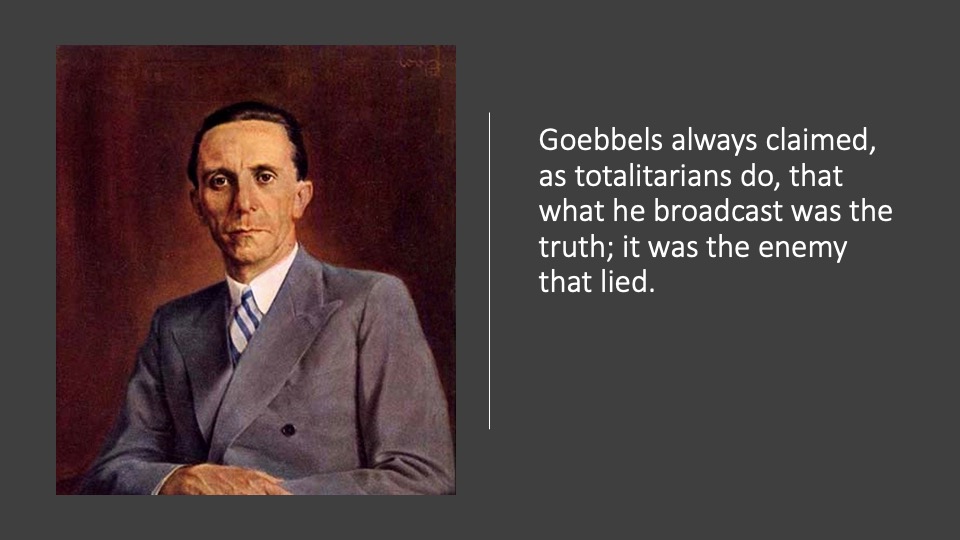
So let a person with integrity tell us what's what. Alan Robles has repeatedly said there's a fundamental difference between revisionism --which can be necessary and good... 

Once you zero in on denialism, you can begin to fight it; you can dissect it as a strategy, you can dismantle it as an infrastructure of deceit. 

Inevitably, denialism involves not just misusing, but actively ignoring facts. The antidote can seem to be embracing the facts and insisting on them. This is important, to be sure. But more is needed. 

Here, this passage to me, suggests to writers --reporters, editorial writers, columnists-- what's needed. To tell a story. Factually, but vividly and well; where the central characters are those who adhere to high and not low standards. Only then can denialism be edged aside. 

And that was my talk, an invitation to revisit what happened, review and reconsider what that tells us, and re-engage the public. Thank you! 

In my column today, there's part 2 of 3 parts revisiting #ML50 and taking a new look at those events. Here are the two parts, with part 3 scheduled for September 28. 



Posctscript: Cebuanos who attended/watched, do read this necessary reading, which mentions the Cebuano journalists targeted by the dictatorship: rappler.com/voices/thought…
• • •
Missing some Tweet in this thread? You can try to
force a refresh



